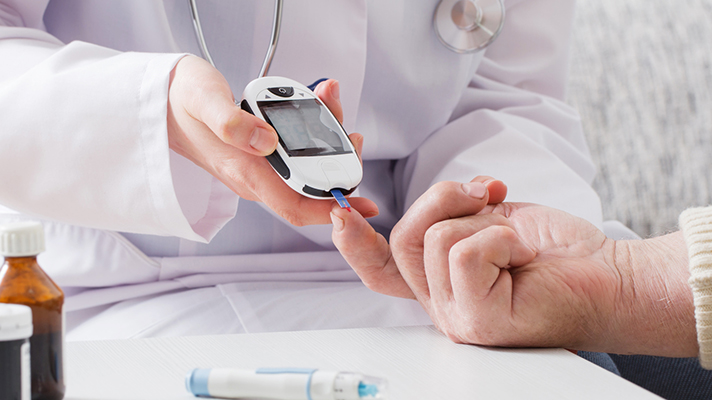With diabetes becoming a worldwide health issue, it is necessary to know the details. There are many who feel that diabetes cannot be cured and ends only with death. However, Dr Pramod Tripathi, founder of ‘Freedom from Diabetes’ explains that there are myths about the disease and they should be done away with.
Myth 1: Diabetes goes only with death… One can never become free.
Truth 1: Diabetics do become free of insulin and medicines permanently! In fact, through experimentation and research have formulated four protocols namely diet, exercise, inner transformation and medicine which has successfully freed over 6000 diabetics in India from medicines and insulin.
Myth 2: Diabetes is hereditary.
Truth 2: This is a partial truth. Type 2 diabetes has a very strong genetic link but the genes are dormant (in a sleeping state and not dominant). They activate only when one’s diet, lifestyle and stress switch them on.
Myth 3: Diabetics produce less insulin.
Truth 3: This is totally wrong when it comes to Type 2 diabetics! The fact is around 95 per cent Type 2 diabetics have higher fasting insulin (more than 4). The real problem is not insulin production but insulin resistance (action of insulin).
Myth: 4: Most important test for diabetes is HbA1c.
Truth 4: This is again a partial truth. HbA1c is the 3-month average of sugars so it is important. Ideally, it should be below 5.7. For diabetics below seven is good control. Even more important tests than HbA1c are: Fasting Insulin (should be between 2.6-4) HsCRP (should be below 1).
Myth 5: Diabetics should eat after every two hours and they should not fast
Truth 5: This again is partially true! Eating in less quantity every two hours will keep the sugar under control, but the problem is the rise in insulin. One will only see a reduction in Insulin when the numbers of meals reduce. Fasting in a scientific manner is highly recommended and has given great results for diabetics.
Myth 6: If sugars are controlled by medicines/insulin there is no need to control your diet.
Truth 6: This is factually incorrect! All medicines have side-effects. With medicines/insulin you are only stuffing more sugar and fat into cells which are already overloaded, so the problem increases. Long-term complications may also happen to people despite good sugar control.
Myth7: Diabetics should not eat mangoes and bananas
Truth 7: This is a partial fact. Bananas and mangoes have medium Glycemic Index. Diabetics can have them once sugars are under control. More dangerous than mangoes and bananas are watermelon and pineapple.
Myth 8: Sugar free sweets are fine for diabetics. These can be gifted to diabetic persons.
Truth 8: This is totally wrong if the sweet contains milk! First, milk and all milk products contain IGF (Insulin-like Growth Factor) which blocks insulin receptors for 48-72 hours. Insulin cannot open the locks and this causes a rise in sugars. Secondly, sugar free chemicals like sucralose, aspartame can severely damage your intestinal bacteria. These bacteria help in producing vital enzymes and vitamins useful in energy production. Also many of these are harmful chemicals and cause autoimmune diseases and cancer.
Myth 9: Sugar is the main cause for diabetes.
Truth 9: This is partially true. High sugar in food will increase blood sugar, but the problem in most diabetics is insulin resistance happening because of fat, acid/inflammation and IGF molecules coming from milk and milk products.
Myth 10: Walking is the best exercise for diabetics.
Truth 10: This is one of the biggest myths. Thousands of diabetics walk daily for years but never become free of medications. This is because walking improves stamina and does not significantly improve muscle mass or strength. Remember 80 per cent sugar is in the muscles. So, these need to be stronger. Only those exercises which are against gravity or resistance improve muscle strength or mass Thus, it is very important to have right knowledge of the disease which will definitely help in the approach of the right treatment.
PNN & Agencies
